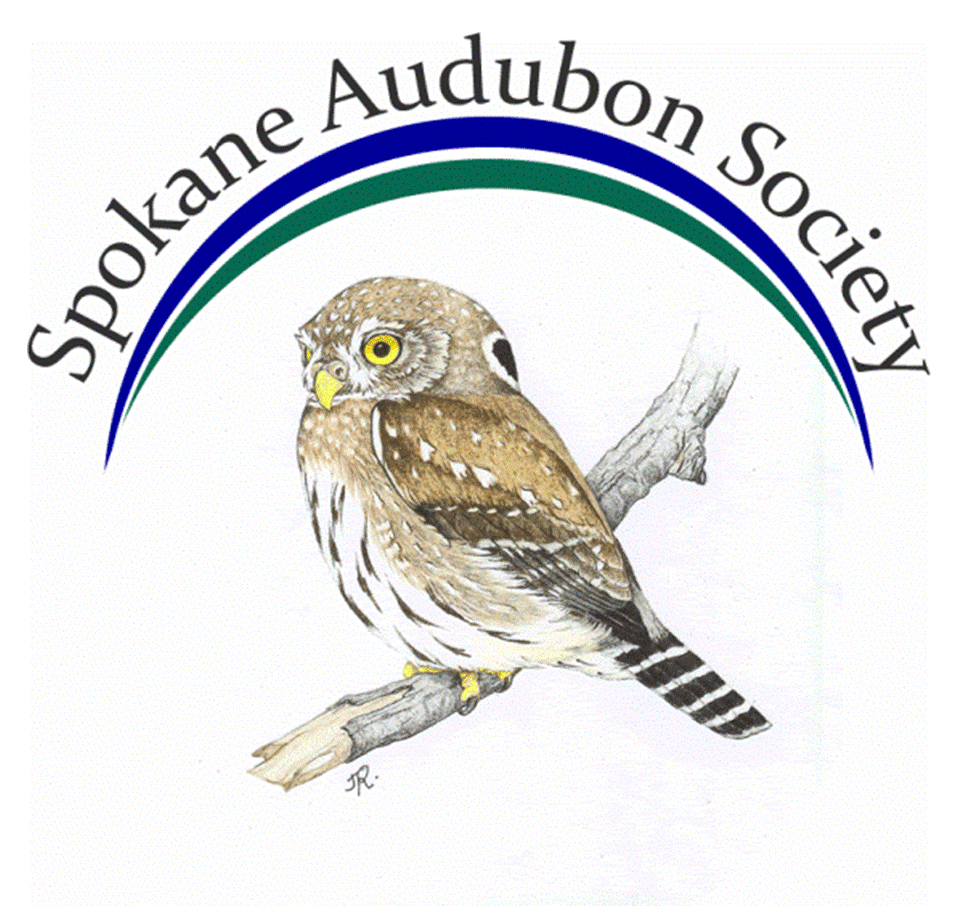Margo Wolf
Margo Wolf
by Madonna Luers
As co-chair of the Spokane Audubon Society (SAS) Save-A-Bird Team, Margo Wolf believes it’s a great endeavor that educates and empowers people to help and protect birds.
“The process is all kinds of messy,” she said, “with lots of different perspectives and limited resources. But I think we’re doing good and I really appreciate all the knowledge, skill, and passion that created it and is embedded in the team.”
Margo’s interest in helping injured or sick living beings fits. She retired in December 2022 from her life’s work as a Registered Nurse. With a Bachelor’s degree in nursing and a Master’s in social work, she served primarily as an RN and in other roles with children and families.
“As I approached my 60th,” she recalled, “I did some soul searching for what direction I might take in volunteering. I was working four days a week and wanted to offer help in an area of interest I was percolating -- helping injured birds.”
She began volunteering at Birds of Prey Northwest, a wildlife rehabilitation and education center in St. Maries, Idaho. The experience led to exploring possibilities for more hands-on work, maybe assisting or even becoming a rehabilitator herself. And then SAS’s Save-A-Bird Team hatched in 2022 and she’s been busy ever since, responding to calls for help to re-nest young birds on the ground, capture and transport injured birds to cooperating vets and rehabilitators for care, or just talking people through what they can do themselves to help birds.
Margo is a long-time SAS member, joining in about 1985 when she wanted to support and be part of a group that shared her passion for birds and birding. She loves contributing to citizen science and data collection and so has participated in the Christmas Bird Counts most years. Many years ago she was involved in SAS committee work developing Spokane County critical area ordinances to help protect and shape wild places.
“I worked with Carol Ellis on some wetland assessments,” she recalled, “just trying to be a voice for nature. The folks on the board and committees back then were some of our founders -- Jan and Ed Reynolds, Dr. Dick Rivers, Russell and Marion Frobe, and a host of other rather brilliant, compassionate people.”
Margo Wolf was born in 1957 in Rapid City, South Dakota, in the middle of a family of eight kids. Her dad was an Air Force pilot, so the family moved around a bit, living in Hawaii for a couple years and then in the Pacific Northwest. She grew up in Lakewood, Washington, near Tacoma.
While in college she met an avid birding family that really got her started in nature exploration and birds in particular. Her nursing graduation present from her parents, who saw how important birding had become to her, was a pair of binoculars.
When Margo moved to Spokane she married a man with deep roots in the area. They built a home just a block east of Newman Lake, a watershed community that they love for all its wetlands in the shadow of Mount Spokane.
“He’s a great guy who supports my interest and enjoys birding,” she said, “but often is looking at old trucks and farm equipment whilst I bird.”
Because Margo’s husband is a scuba diver, much of their travel over the years has been to either dive or bird, or both. No matter where they go, she can’t NOT bird – something she knows other birders understand. They spent nearly a month in New Zealand and Australia, and have made other memorable trips to Florida’s Everglades, Crooked Tree Wildlife Sanctuary in Belize, and Costa Rica.
Her favorite birding experience is the local springtime return of so many birds, including swallows and bluebirds. “A Lazuli Bunting sighting is a sweet thing,” she said. Her favorite bird is the Belted Kingfisher because it is so lively, loves water, and “frequently has something to say.”
Margo’s tips for birding newcomers are to get good optics, spend time with someone that has a few skills, be patient, and learn bird calls. She believes to get more young people interested in birds they need birding mentors and more opportunities to spend time in and raise their awareness of nature. “It’s great to have friends that enjoy the same interest,” she said, “and I have been fortunate in that way.”
She believes the most important issue for the future of birds is preservation of habitat and whole ecosystems. “I wish every homeowner and business made space for as much nature as possible,” she said. “We all need to disturb less and preserve more.”







